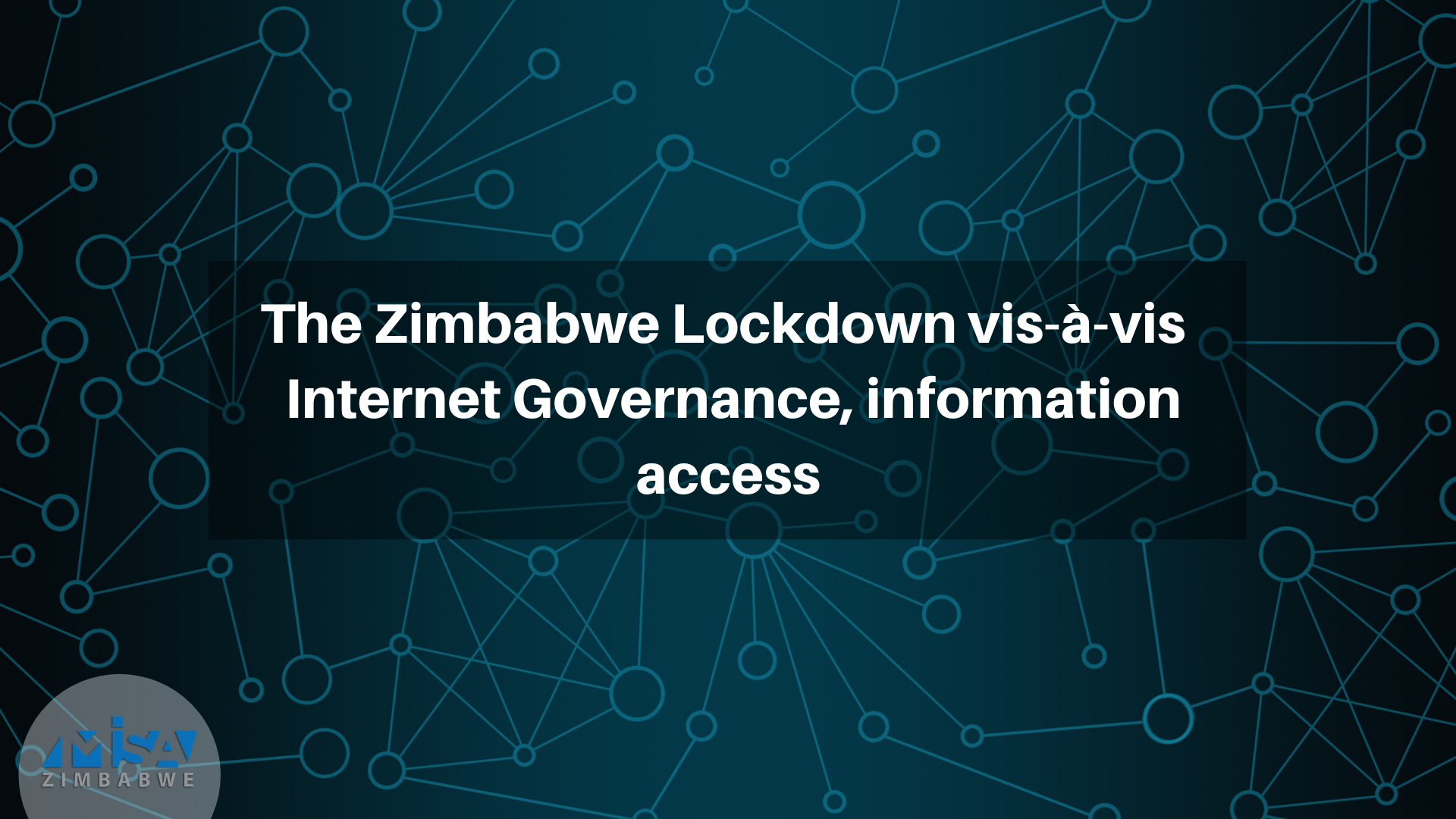The Coronavirus (COVID-19) pandemic has had devastating effects worldwide with numerous infections and deaths having been recorded in places like Italy and China. From a statement released by the Ministry of Health on the 27th of March, 1 death has been recorded while in total 7 cases have been confirmed in Zimbabwe.
MISA Zimbabwe commends the President for giving the directive on 27 March 2020 that Zimbabwe will be on lockdown for 21 days starting from 30 March 2020. The directive includes the closure of all businesses with the exception of essential services, the cancellation of all gatherings, and, the confinement of people to their homes.
The President had also earlier, on 17 March 2020 given a directive to cancel all gatherings particularly with over 100 people and also encouraged people to stay at home.
What this has meant for various companies and institutions is that employees have to work from home and conduct virtual meetings with reliance being placed on facilities like Google Hangouts, Zoom and Skype among others while banking facilities have also encouraged online transactions. However, in the past week, people continued to report for work because of the lack of internet access to work from home and as such exposing themselves, fellow employees and their families to the risk of infection by the virus.
With the lockdown coming into effect, the sad reality for the majority of Zimbabweans is that internet access remains a challenge with Zimbabwe having been ranked amongst some of the countries with the most expensive data in Africa.
Zimbabwe has poor laws that regulate the pricing of the internet and on the other hand, the expensive startup costs also hinder the entry of new players into the telecommunications industry. As a result, near-monopolies (oligopolies) continue to be entrenched in the industry and the big players set prices that are beyond the reach of many, thus hindering their access to the internet.
In March 2020 alone, Econet Zimbabwe has given about two or more notices on reviews of their prices, one being a review of bundle prices for data and SMS with effect from the 11th of March 2020 and another a review of tariffs with effect from the 14th of March 2020. Considering that Econet Zimbabwe is the market leader, by any measure in the telecommunications industry, such frequent hikes in the tariffs will affect millions of citizens’ access to the net.
Citizens have the constitutional right to access to information particularly on the state of the Coronavirus pandemic in Zimbabwe. The internet in general and social media platforms in particular, like Facebook, WhatsApp and Twitter are relied on by the general public for quick and easy communication and therefore play a crucial role keeping the citizens informed. As such, internet affordability issues should be addressed in Zimbabwe, especially during the sad chapter of the COVID-19 pandemic.
MISA Zimbabwe, therefore, calls for the Mobile Network Operator (MNO) to be responsible corporate citizens by reviewing their prices to enable access to information to the citizens and contribute through their platforms in raising awareness on the subject matter. A request for a downward review of the data prices is necessary to facilitate access to information in this time of crisis. In addition, the regulator, POTRAZ should equally be proactive in the review of the costs of telecommunications and internet services in Zimbabwe in the face of this pandemic.
Likewise, the irregular and minimal supply of electric power also continue to hamper access to the internet in Zimbabwe. All these are internet governance issues that Zimbabwe should address not only during this crisis but also going forward.
Internet access has also been hampered by the lack of infrastructure in Zimbabwe. People in rural and marginalized communities not only have limited access to traditional forms of media like community radios but also access to the internet. The majority of them, therefore, continue to loom in the dark while information is only shared in the urban areas. This not only violates their right to access to information but also exposes them to the risk of contracting the Coronavirus as they continue in their state of unawareness in relation to the factual information, statistics, remedies, procedures and mechanisms in place in relation to the disease.
We, therefore, repeat our call for the three “A”s in our campaign for the citizens’ participation online namely: Internet access, availability and affordability. As we said elsewhere and will repeat again, the right to know is key to life.
End
MISA Zimbabwe Communique









